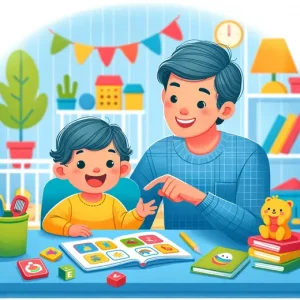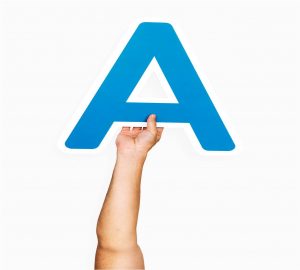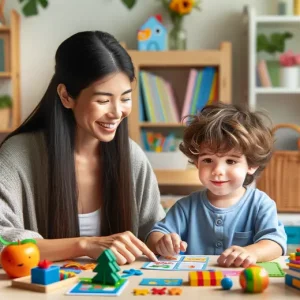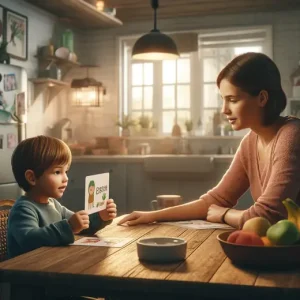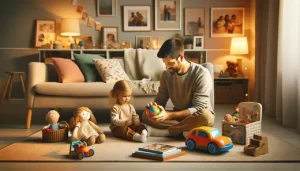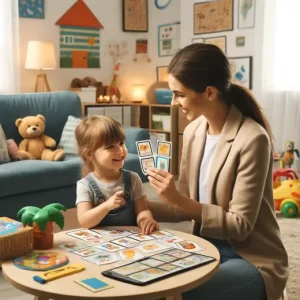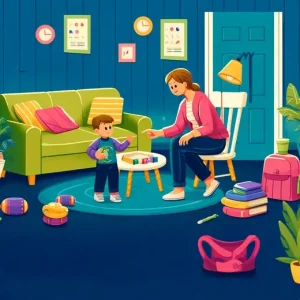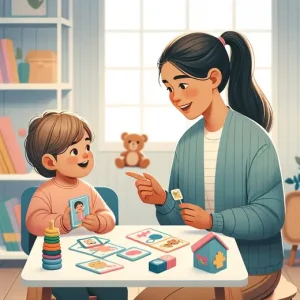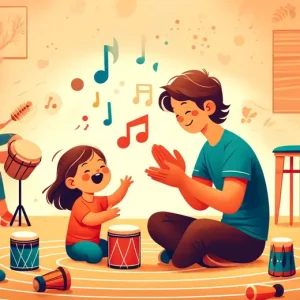Playful Possessives – Fun Speech Activity at Home (2-3 Year Old)
By Rajini D
Last Updated: March 15, 2024
Step into the enriching realm of ‘My, Your, Our World,’ an engaging activity crafted to instill a deep understanding of possessive forms in young children. Tailored with thoughtfulness, this guide is particularly designed for children with developmental delays or special needs, offering a creative approach to comprehending ownership and relationships through language.
Detailed Activity Instructions:
Creating a Comfortable Space:
Prepare for ‘My, Your, Our World’ by gathering a selection of your child’s favorite toys and common household items. Choose a cozy and familiar space to conduct this activity, fostering a relaxed and receptive learning environment.
Introducing Possessive Forms through Objects:
Initiate the activity by introducing possessive forms using toys and items. Pick up a toy and say, ‘This is my toy,’ then pass it to your child, encouraging them to say, ‘Now it’s your toy.’ This hands-on demonstration establishes a tangible link between language and possession.
Using Family Photos for Personalization:
Extend the learning to family relationships by incorporating family photos. Show a picture of a family member and illustrate possessive forms, such as ‘This is Daddy’s hat’ or ‘This is Grandma’s book.’ This personalization deepens the connection between language and real-life relationships.
Also Read: Home-Based Speech Therapy Activities for 1-2 Years Kids
Engaging in Possessive Form Games:
Transform learning into a playful game where your child identifies items belonging to different family members. Prompt them with questions like ‘Whose shoes are these?’ or ‘Is this Mommy’s or Daddy’s coat?’ to reinforce possessive forms in a fun and interactive way.
Addressing Potential Concerns:
Confusion Between Possessive Forms:
If your child mixes up possessive forms, simplify the activity by focusing on one form at a time. Use repetition and consistent examples, gradually introducing additional forms to reinforce understanding.
Limited Engagement or Attention:
Maintain engagement by infusing playful elements. Incorporate your child’s favorite toys or turn the learning into a treasure hunt, making it an exciting adventure of discovery.
Difficulty in Understanding the Concept of Ownership:
For children finding ownership challenging, use concrete examples related to everyday life. Demonstrate items clearly associated with specific family members, creating a direct connection between language and ownership.
Objective of the Activity:
The core objective of ‘My, Your, Our World’ is to facilitate your child’s understanding and use of possessive forms. By fostering a sense of belonging and recognition of relationships through language, this activity enriches their language skills and family bonds.
Closing and Additional Tips:
Patience and encouragement are essential throughout this gradual learning process. Celebrate your child’s efforts and successes, no matter how small, and relish the journey of discovery together. ‘My, Your, Our World’ is not just an activity; it’s a delightful exploration that strengthens language skills and family connections.
About the Author:
Rajini Darugupally
M.Sc., Speech-Language Pathologist (9+ years of experience)
Rajini is a passionate and dedicated Speech-Language Pathologist with over 9+ years of experience, specializing in both developmental speech and language disorders in children and rehabilitation in adults. Driven by a desire to empower each individual to find their voice, Rajini brings a wealth of experience and a warm, genuine approach to therapy.
Currently, at Wellness Hub, she thrives in a team environment that values innovation, compassion, and achieving results for their clients.
Connect with Rajini to learn more about how she can help you or your loved one find their voice.
Book your Free Consultation Today
Parent/Caregiver Info:
Client’s Details:
* Error Message
